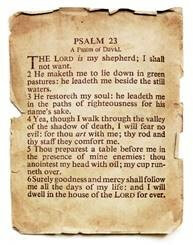“Introducing… On-line Giving!”
I wanted to take this opportunity to share with you something exciting now taking place at Central. In an effort to be faithful stewards with what God has entrusted to us, we are proud to announce that we now offer some new on-line giving options. Please note, we will still be accepting offerings and donations in all of the ways we currently do. So if you have no interest in doing anything differently, that is absolutely fine. But what we offering now has been a long-time coming and I want to thank the stewardship department, our treasurer and financial team, our vice-president of administration, and our church office staff for doing the lion’s share of the work to make this a reality.
Why are we undertaking this opportunity at Central? First, it provides flexibility for our members to give how they want to, regardless of day or time. As our world becomes increasingly more digital, this feature allows members and friends of Central to give in ways that are more compatible with their method of making other payments. Secondly, it will help all of us better develop a habit of giving regularly. Online donors will be able to set up a recurring donation to the church by using a credit or debit card. Thirdly, this allows us to connect with the next generation which is one of our core values. We will still collect offerings the traditional way on Sunday mornings and you can certainly continue to write checks or donate cash. But younger generations are used to making payments online and this allows us to provide the means for them to be faithful stewards in a manner that is comfortable to them. Finally, research over the last 10 years has shown that churches who embrace online giving notice an increase in consistency of gifts received, as well as in the overall amount of contributions received annually.
How does online giving work? You will have the option of using our website (www.cccdisciples.org), clicking on “GIVE” on the homepage and registering as a New User. You will then be able to make payments to the operating fund, building fund (capital campaign), memorial fund and any designated fund or special offering you choose. You can also contribute with your smart phone by downloading a special App that will sync with your online account.
In the Welcome Center you can pick up a card with step-by-step instructions for getting started. And you may attend an orientation tutorial on Sunday June 10. We’ll be offering the tutorial three (3) times that day: at 9:00 a.m., 10:00 a.m. and 11:30 a.m. (after each one of our services). These will be held in the Connection Café. Should you miss the tutorial, we will be happy to email you the step-by-step power point. We believe that financial giving is one of the ways we express our faithfulness to Jesus Christ. As a pastor, I believe it is the church’s responsibility to offer everything it can to help people live out that mark of faithfulness. To that end, I am absolutely thrilled that Central is offering online giving and am confident that this is something that will benefit us for years to come.

